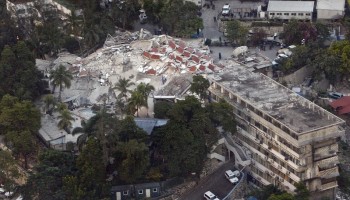Romanian national police in the city of Ploiesti, working with Spanish police and EU crime authorities Eurojust and Europol, searched 17 houses, arrested five suspects, and rescued five victims of human trafficking on Monday. Authorities also seized phones, laptops, and a car.
This is the second bust for this organized crime group. On Jan. 23 and 24, agencies collaborated to arrest 10 suspects, search six houses and retrieve 14 victims in the Alicante region on the southeastern coast of Spain. Authorities froze bank accounts of the suspects arrested during this portion of the operation.
The Romanian Directorate for Investigating Organized Crime and Terrorism (DIICOT), Spanish police, Eurojust and Europol used surveillance and wiretapping techniques to uncover the organized crime group, in an investigation that began in July 2013.
The directorate named five alleged leaders of the group: Lupu Gelu Gheorghe, Aurel Lupu, Nicoleta Dumitrescu, Valentin Vasile and Ilie Florin. The suspects will be tried in Romanian courts.
The organization allegedly forced victims into prostitution in the Spanish cities of Alicante and Madrid, then used the profits to finance their human trafficking scheme. According to eLiberare, a human trafficking prevention organization based in Romania, it is typical for human trafficking rings to lure Romanians to western countries with promises of secure jobs, by exploiting their economic vulnerabilities.
ELiberare praised what it called a “proactive” investigation:
“We believe that as the Romanian society becomes more engaged in this issue of human trafficking, we will see trafficking decrease in a real, substantial manner. The burden does not just fall on law enforcement, but each and every one of us to do our part to prevent human trafficking in Romania.”
The US State Department’s annual human trafficking report said that in 2013 the Romanian government investigated 714 cases of human trafficking and identified 896 victims. The embassy praised the government's efforts, but criticized a lack of institutional support for victims. The government does not currently fund any of the survivor shelters run by non-governmental organizations.





